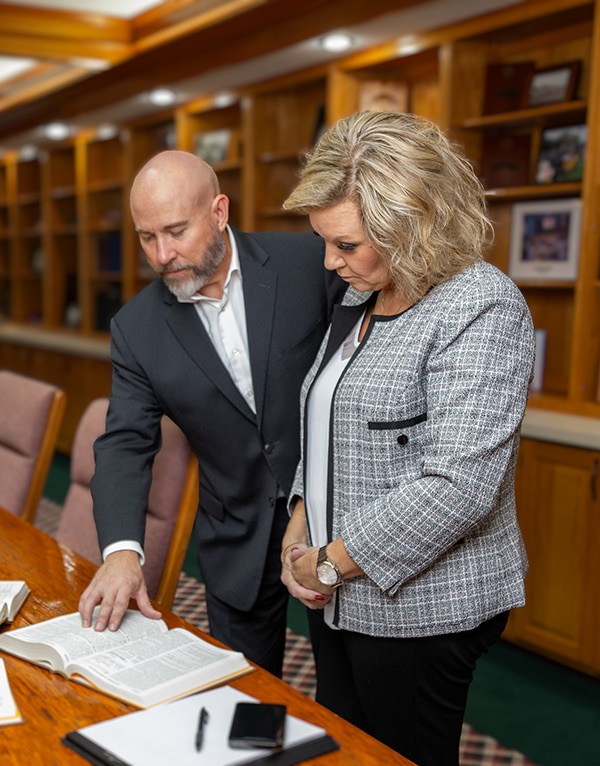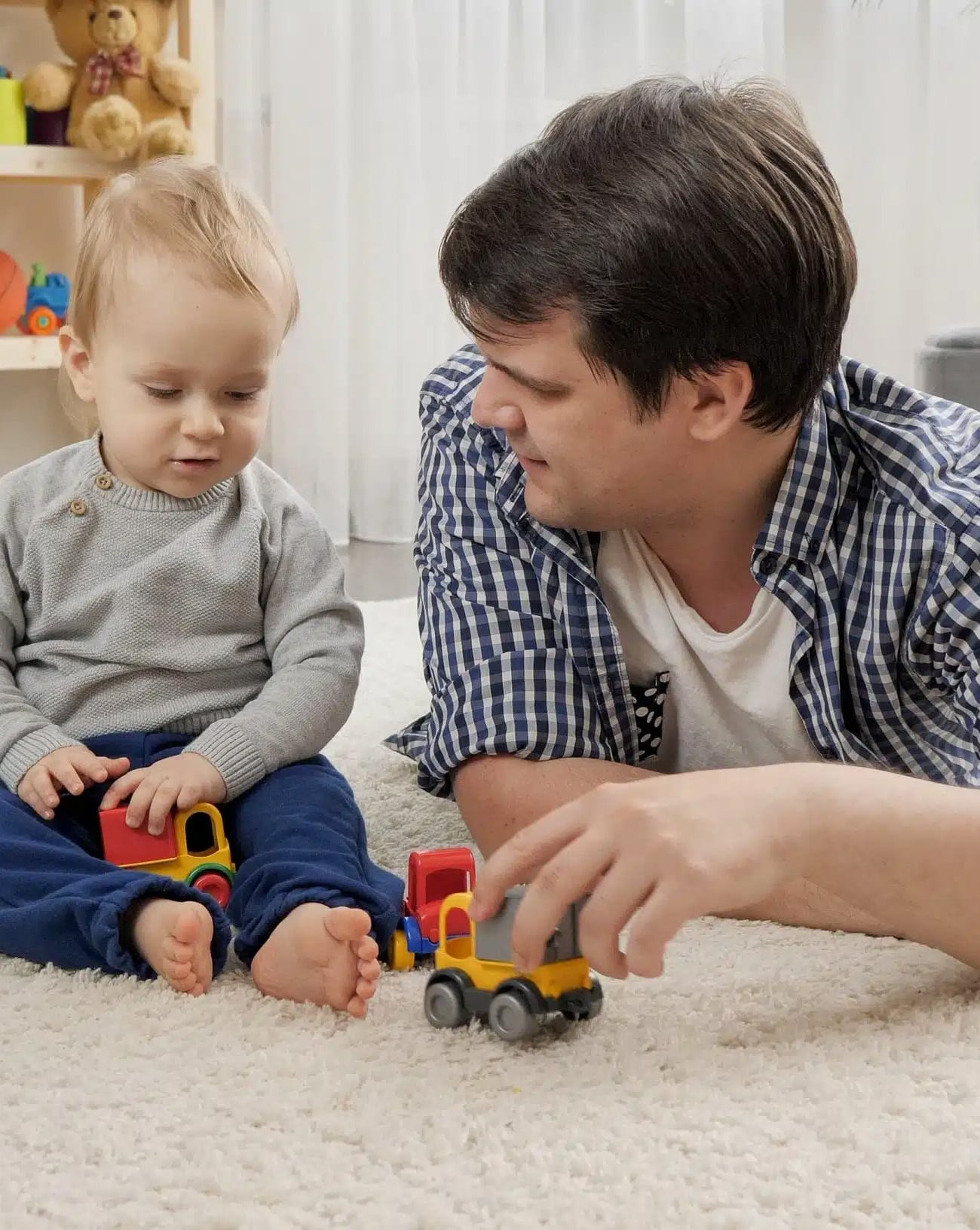Child Visitation Lawyer Florida
Even in an uncontested divorce, it is very common for child visitation to be the one thing that fires up everyone’s emotions. In fact, the idea of losing custody of the children can often be enough to make people rethink divorce altogether.
Whether you’re still in the process of divorce or you want to modify an existing Parenting Plan, you need a good Orlando child custody lawyer who can guide you through the process while keeping your children’s interests at heart.
At Leap Frog Divorce, we not only specialize in Florida family law, we make it our duty to become experts in your family.
From start to finish, our top priority is making sure that your interests are well represented so your kids receive the parenting they deserve.

Child Visitation vs. Custody
You may have heard legal experts from other states make a distinction between custody and visitation.
When you have legal custody of your child/ren (either shared or sole custody), you have the right to make decisions about things like healthcare, education, and other major topics. Visitation, on the other hand, is simply your right to see and spend time with your child or children.
However, Florida courts have replaced the terms custody and visitation with “parental responsibility” and “time-sharing.” In Florida, there is now a presumption of 50/50 time-sharing and shared parental responsibility.

How Child Visitation Works In Florida
Whenever minor children are involved, all Florida divorces must include a Parenting Plan.
Your Parenting Plan must include:
- A time-sharing schedule
- How each parent will handle the daily responsibilities involved in raising the children
- Who is responsible for healthcare and school activities (including whose address will be used for school designation)
- How the parents will communicate with the children (either through an individual or technology)
Both parents must agree to the time-sharing schedule and it must be approved by the court as well. If you can’t agree or if the Judge doesn’t approve of your plan, the court will create one which it determines will serve the best interests of your child/ren.
Your visitation schedule does not have to be split equally between the two of you to be considered “fair.”
Florida courts recognize that every family is different, so there isn’t any standard Parenting Plan in the statutes. This allows for unique family dynamics to be accounted for.
For example, one schedule might involve spending 2 days with one parent, 2 days with another parent, then 3 days back with the first parent before the schedule switches the following week. Another schedule might have the child with a parent for 3 days and the other parent for 4 days one week, switching every week.
Parenting Plans can also be permanently modified as situations change. Any permanent change to the visitation schedule will also have to be approved by the court. And just like with the initial visitation schedule, the judge will have the ultimate authority in the matter and has the right to deny any changes that don’t benefit the children.
How Leap Frog Can Help
As your child visitation attorney, our top priority is creating a plan that works best for your family. (As attorneys, we can’t strive to do what’s best for both spouses even though in our hearts we would like to see that happen in some cases.) This usually involves a thorough consultation to learn about your current family dynamic and highlight the major issues surrounding child visitation and custody.
Some common questions we ask include:
- What is your parenting style?
- How does your spouse’s parenting style differ from yours?
- What worked well in your marriage?
- What didn’t work?
- How do the two of you share parenting responsibilities?
These questions may sound intrusive, but it is the best way to get an understanding of your lifestyle so we can make sure your own rights as a parent are well represented.

Code Word LIGHT:
For navigating misunderstandings
Communication is key to a successful co-parenting relationship. Knowing that there will be occasional misunderstandings is important, and so is knowing how to handle them. We devised this five-step plan to improve communication between co-parents so you can always feel heard.

Text LIGHT to your co-parent
- Purpose: Communicates immediate concern quickly
- Purpose: Opens the door for further discussion
Co-Parent receiving text, texts back the following words:
“Please tell me more.”
- Guidance: Take a deep inhale and a longer exhale.
- Guidance: Set aside defensive thoughts or posturing. Get curious.
- Guidance: Most of us have that defensive moment. It’s normal. Keep breathing deeply.
Co-Parent who texted LIGHT responds with the following words:
“My experience of when you (said/did/didn’t do) is that I am now feeling/thinking (describe feeling/thoughts).”
- Guidance: Breathe deeply and allow your co-parent time to process what you just texted.
Co-Parent receiving this information responds with the following words:
“Thank you for telling me.”
If you agree with what your co-parent said, text an apology for your actions or something you said.
If you don’t agree, text “I am seeing this a different way. Are you open to hearing me?”
- Guidance: Remember that acknowledgment does not equal agreement.
- Guidance: Acknowledging perspective gives the other person one less thing to fight for.
- Guidance: Never try to convince someone that their personal perspective is incorrect.
- Guidance: Personal perspective is sacred. To work with your co-parent, you must acknowledge and move on.
Co-Parent who texted LIGHT responds with the following words:
“Thank you for the apology” if one was received,
or
“Yes, let’s make time to talk about this” (if no time on the spot) OR “Yes, let’s talk now.”
- Guidance: Your co-parent may need more time to think, so schedule a time that is good for both of you.
- Guidance: You may consider engaging a mediator to help you talk this through.
Expert Advice From Your Corner
The media has done an excellent job at perpetuating the myths and misinformation that surround divorce. As an experienced child visitation lawyer, I consider it my obligation to correct these myths so that you are fully informed.
For example, the law does not automatically grant full custody to the mother in all cases. In fact, Florida courts prefer to award joint custody and will consider multiple facets of family life—including the relationship between the parents, geographical concerns, and even the children’s preference—when coming to a decision on visitation.
Another prevalent myth is that your spouse is allowed to withhold visitation if you are behind on your child support payments. If this is the case, a child visitation attorney can help you return to your agreed time-sharing schedule.

Your Family Comes First
At Leap Frog Divorce, our goals are the same as yours. We want what’s best for your children.
While it would be nice if every couple were able to have an amicable divorce, the reality is often far from peaceful. If your spouse has been hostile, belligerent, or even vindictive, it is vital that you have an experienced child visitation attorney on your side who can fight for you.
Schedule your consultation today so we can learn more about your family situation and advise you on the best course of action.





